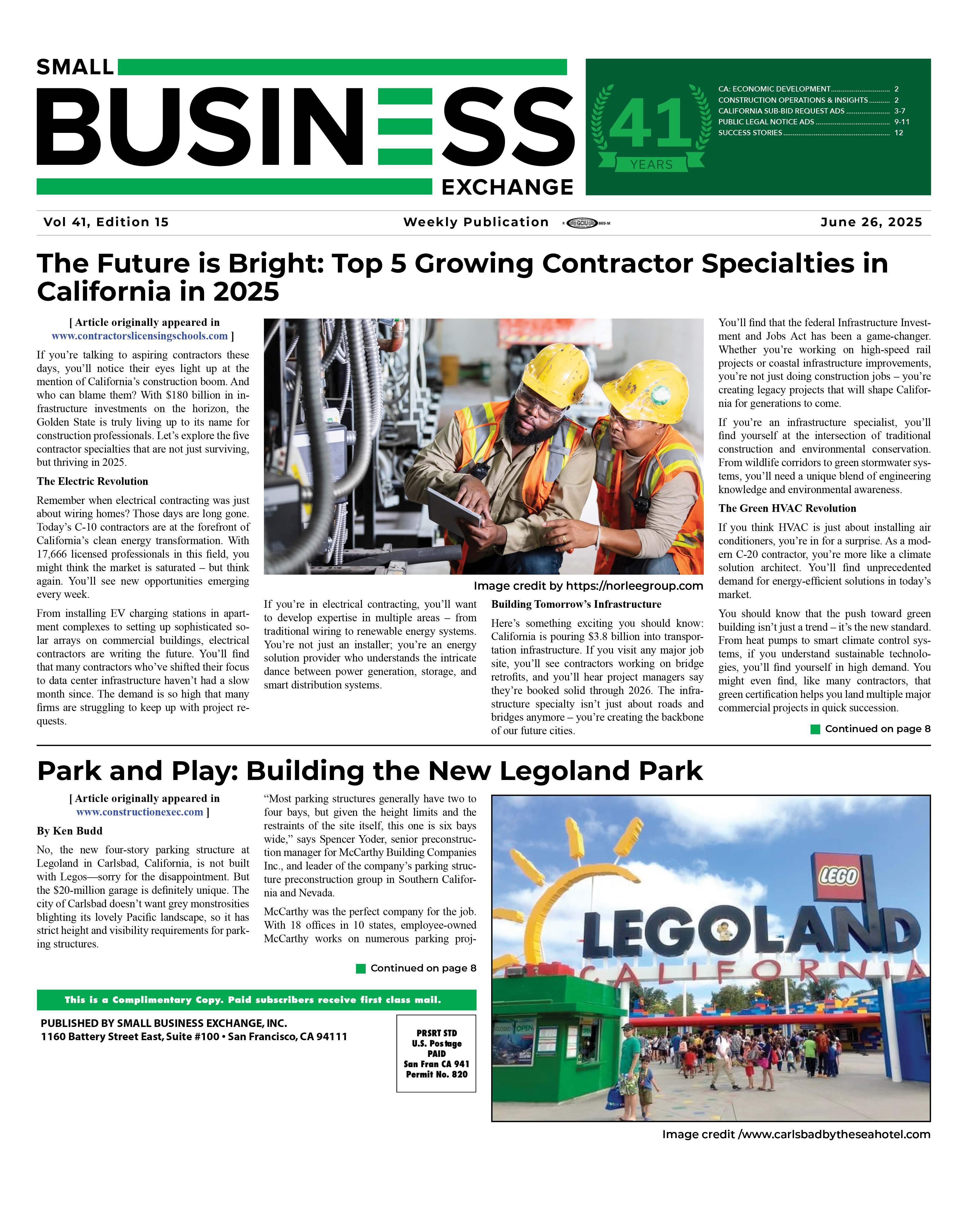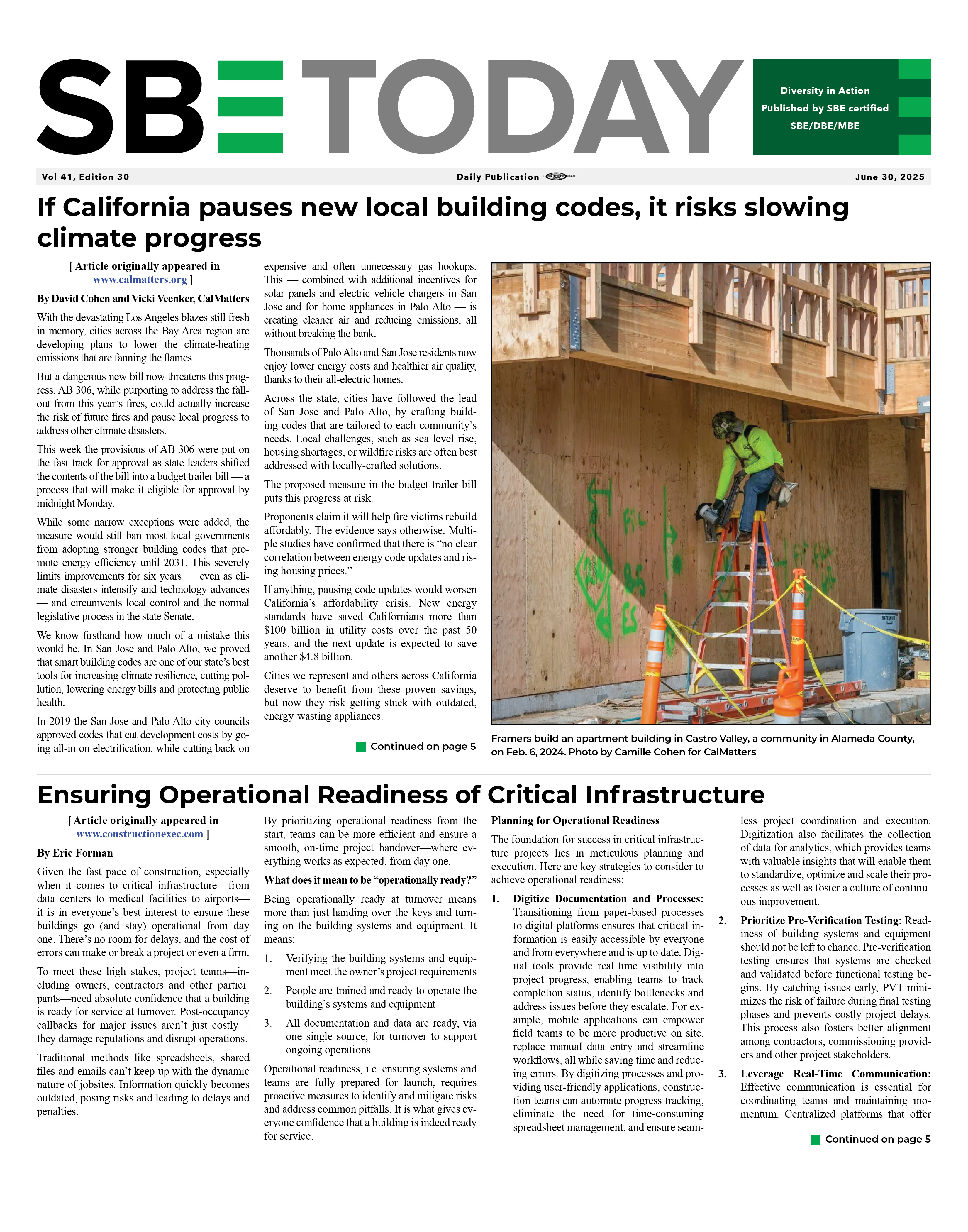The U.S. Small Business Administration recently proposed new regulations to make it easier for small businesses to understand and comply with the Historically Underutilized Business Zone (HUBZone) Program’s requirements.
These proposed changes will make the program a more attractive avenue for procuring agencies. While the 8(a) Business Development Program has been an integral part of SBA’s history, the HUBZone Program has the potential to be just as popular.
The problem with existing HUBZone rules and regulations is that compliance is often difficult to achieve and maintain and can change almost without warning – thereby rendering a company ineligible due to no significant fault of the business owner or its employees. Worse – this uncertainty erodes the confidence of the government buyer to use the program.
Two of the main challenges with compliance are: 1) the continuous and unpredictable movement of where a HUBZone is actually located; and 2) maintaining a mix of total employees of which at least 35% reside in a HUBZone. What makes this worse – these two challenges are often conflated.
The public is invited to read the Federal Register notice , which contains details about the proposed changes, and comment on the proposed new rules. The deadline for public comment is December 31, 2018.
, which contains details about the proposed changes, and comment on the proposed new rules. The deadline for public comment is December 31, 2018.
The SBA is proposing three changes to the HUBZone program requirements:
1. Freezing the HUBZone maps until 2020 and then update the maps every 5 years
-
This will allow a HUBZone-certified company to rely on having a compliant business location until after 2020, and then the maps will be updated every 5 years.
-
HUBZone employees (as long as they maintain residence) are qualified until after 2020.
-
SBA regulations also allow HUBZone companies up to three additional years to move to a new HUBZone location if the Census Tract/HUBZone loses its designation, so the HUBZone firm and its employees effectively have until 2023 or later to enjoy HUBZone certification without having to move.
With the maps being updated every 5 years and the redesignation period being 3 years, that’s eight total years – almost as long as the 8(a) certification, which is nine years. And if you’re an 8(a) firm, now you have two certifications. That will increase a company’s federal contracting opportunities.
2. Amend “35% rule” regarding mixture of HUBZone/Non-HUBZone employees.
-
Under the proposed change, an employee must reside in a qualified HUBZone for a specific and uninterrupted period of time and be hired by a HUBZone firm before the employee will count towards the 35% mix of HUBZone/Non-HUBZone employees. After that period of continuous residence in a qualified HUBZone, the employee will always count as a HUBZone employee for that HUBZone firm as long as he/she remains employed by the HUBZone firm, even if the employee moves to a non-HUBZone area or the employee’s residence loses its HUBZone status.
-
This is meant to address the problem with the current rules, which incentivize a HUBZone firm to fire an employee because he or she moves to a non-HUBZone location or their residence loses its HUBZone status.
3. Fix the eligibility requirement for awards.
-
SBA proposes to change the existing requirement that a HUBZone company must be compliant at the time of bid and also at the time of award. The government can take months if not years to award a contract. A firm cannot possibly know when the government will award a contract, and therefore cannot know whether it will be compliant at the time of award. SBA’s proposed changes require that a company only needs to be certified/recertified once a year and will not need to prove compliance at the date of bid or at the time of award.
-
SBA believes the changes will have the following benefits:
-
This will allow a company to bid and win as much business as they can during a given year.
-
More importantly – it gives government confidence that if they take the time and effort to compete and select an awardee – they will no longer be prevented from awarding a contract because the company was not in compliance at the time of offer or award.
-
If the company is determined non-compliant by its annual recertification date, it must bring itself into compliance before continuing in the HUBZone program. However, its performance on contracts won in the previously compliant year will not be adversely affected.
In summary, these proposed rules will make it easier for HUBZone companies to establish and provide long-term employment in their communities – and, more importantly, improve the quality of solutions for our government.
For more information about the HUBZone program, visit www.sba.gov/HUBZone .





